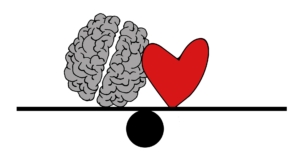What can be expected from BPD treatment?
Effective treatment for BPD requires long-term commitment so it is important that both the person with BPD diagnosis and the therapist consider this fact before beginning a full course of psychological treatment.
For a person to achieve the best results from psychotherapy, attending regular weekly appointments for individual and group therapy is often necessary. Open discussion with the therapist would include exploring their expectations of the therapy. Assessment and some pre-therapy sessions can assist some patients who are apprehensive or anxious about engaging with therapy to familiarise themselves with what treatment entails.
Although, BPD is a slow-moving disorder, studies show that BPD has a good prognosis in the long-term of which after 16 years 99% of those previously with a BPD diagnosis no longer fit the BPD diagnostic criteria.
Psychotherapy will allow individuals to :
- learn to accept the diagnosis.
- understand their thoughts, feelings and behaviours.
- manage emotions and impulses.
- change the way they relate to themselves and others, especially in close relationships.
- develop a stable sense of self.
- regain or maintain their interests and job/study goals.
SOUTH AUSTRALIAN MENTAL HEALTH COMMISSION – Recovery from BPD
DAVID – Recovery
MARY ZANARINI – The goal of therapy: To get you out of therapy
To see more interview footage about recovery go to Borderliner Notes.
Factors that may affect the treatment process:
- prolonged and/or frequent hospitalisations as a primary method for risk management
- patient-therapist relationship not the right ‘fit’
- treatment structure is not clear and consistent
- excessive dependence on medication as primary or secondary form of treatment
- substance use and/or complementary treatment of comorbid illness
- poor planning of how to deal with crises
- lack of involving input from other practitioners and family members (where appropriate and approved)
- a rigid and inflexible therapist
- no sense of autonomy with treatment.
National Health and Medical Research Council guidelines state that people with a BPD diagnosis should be provided with structured psychological therapies that are specifically designed for them and conducted by one or more adequately trained and supervised health professionals.
RETHINK BPD – What recovery looks like for BPD
For more information
Australian BPD Foundation Ltd – Factors for effective treatment of BPD
BPD Treatment – What’s the prognosis for someone with BPD?
Counselling Directory UK – Effective treatment for BPD: What to look for
Bridges to Recovery – How a strong therapeutic alliance improves treatment outcome for BPD
MPR – BPD: How effective are psychotherapies?
SANE Australia – BPD: What does recovery look like?
Sources
Efficacy of psychotherapies for borderline personality disorder



